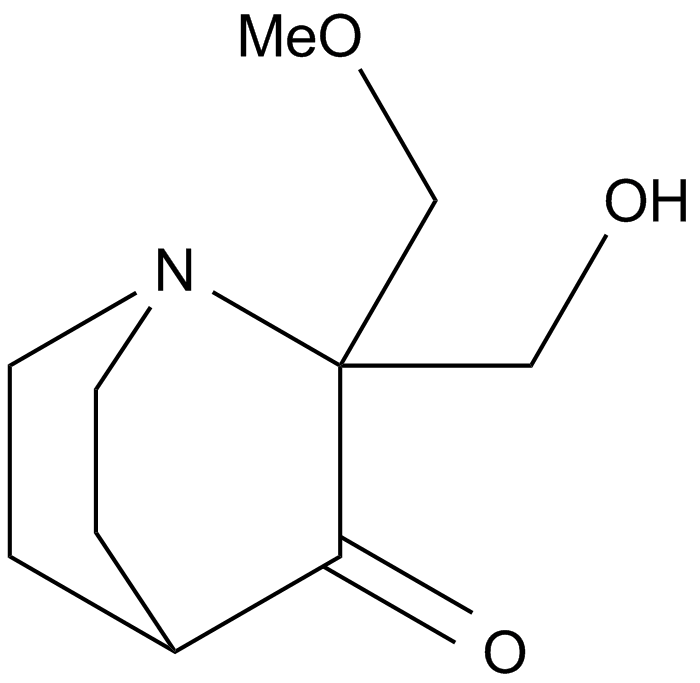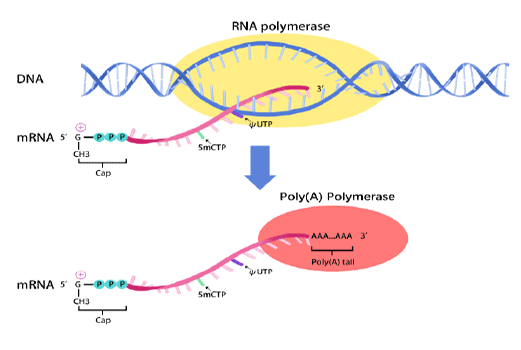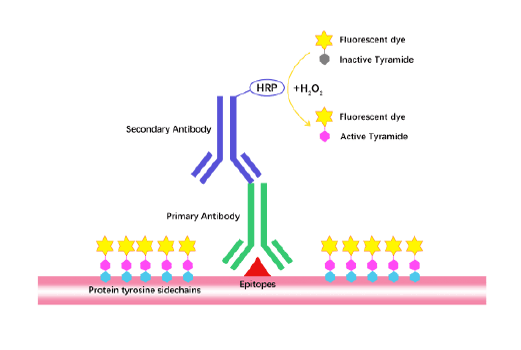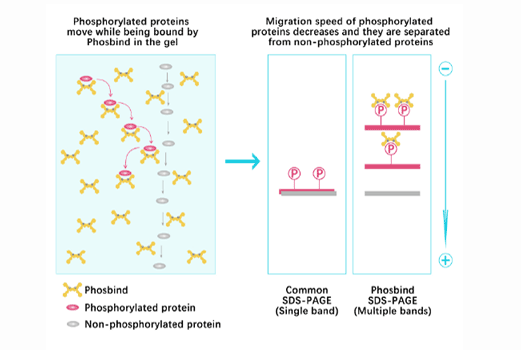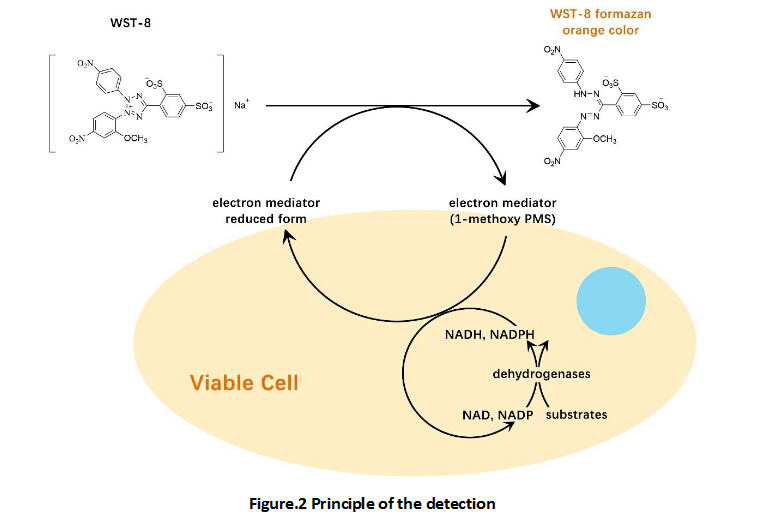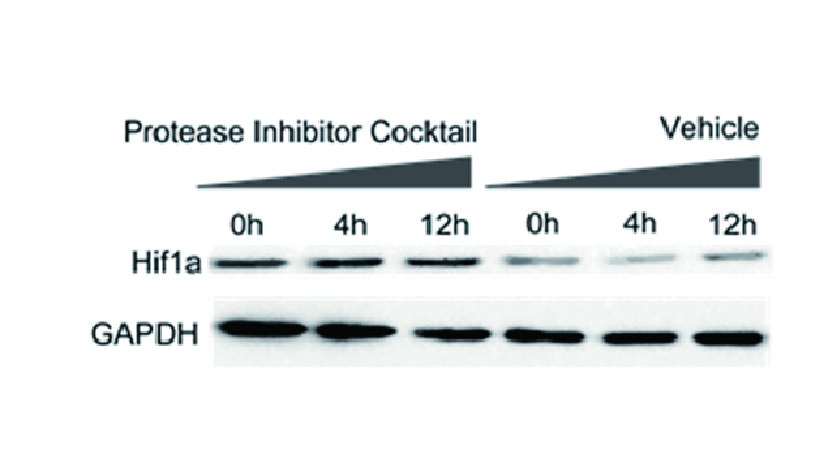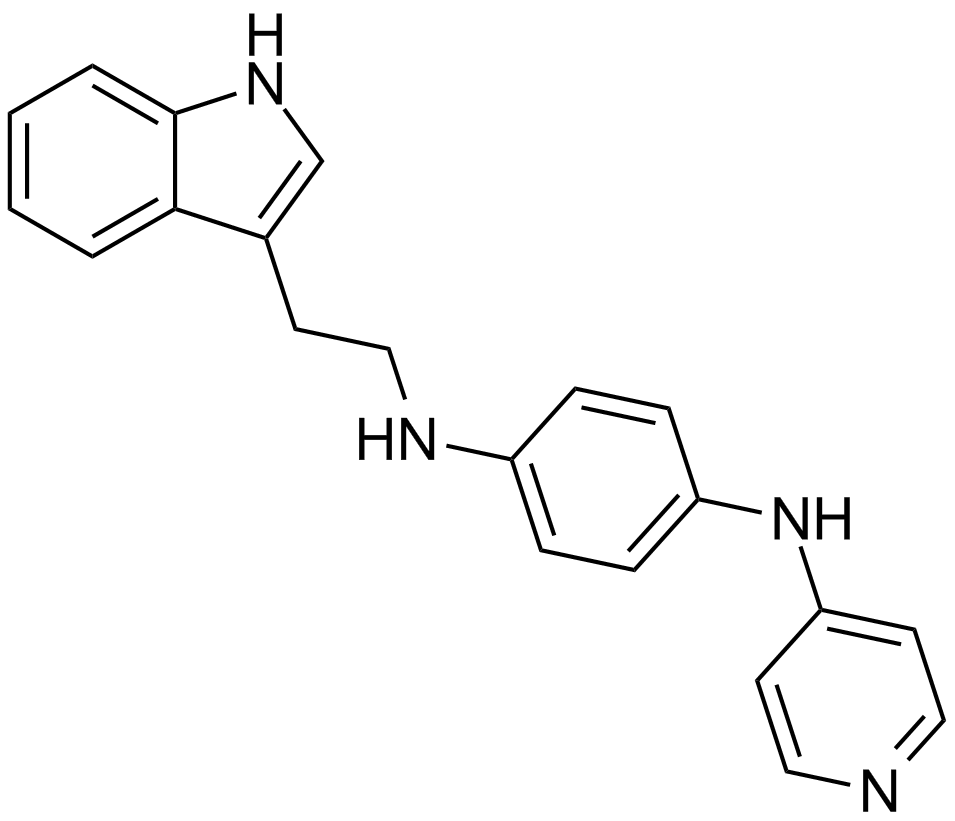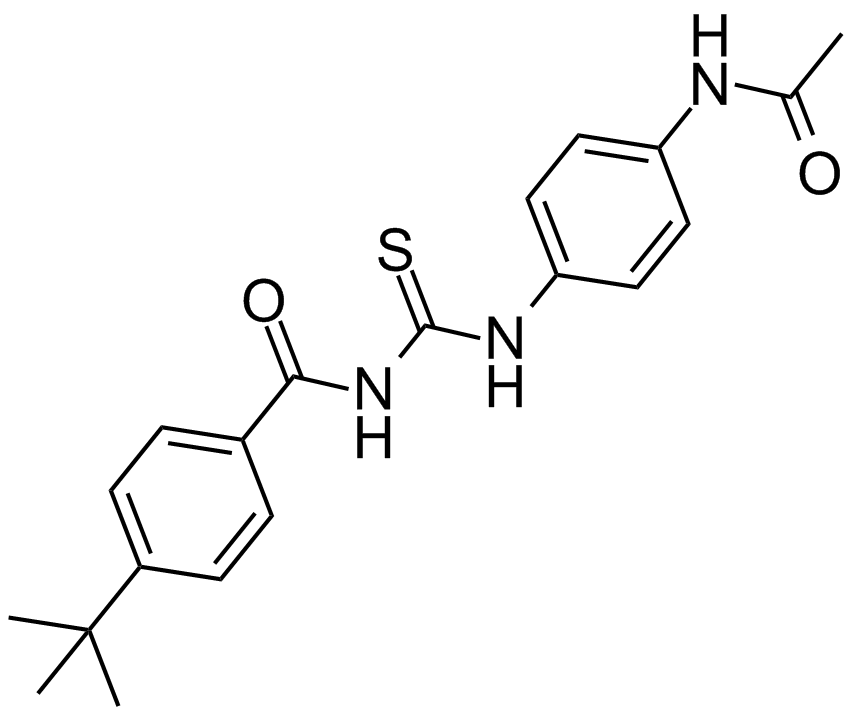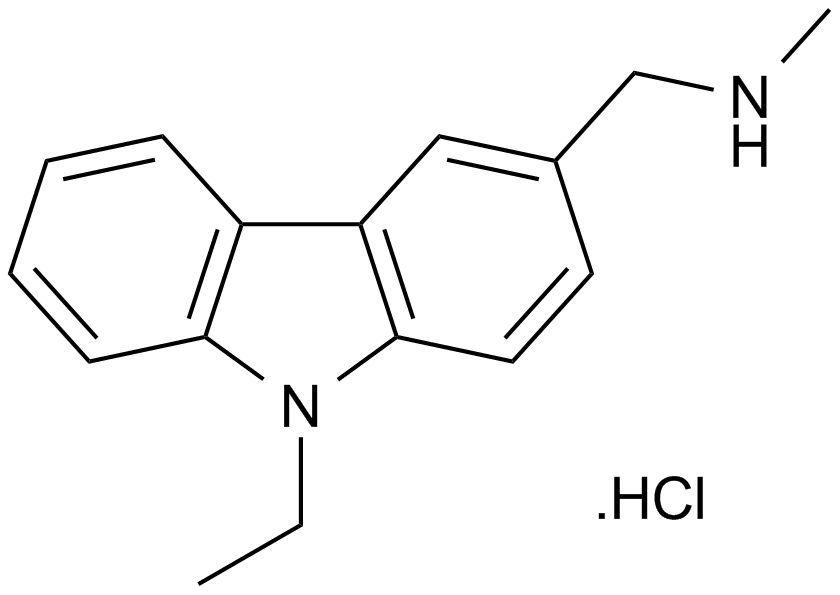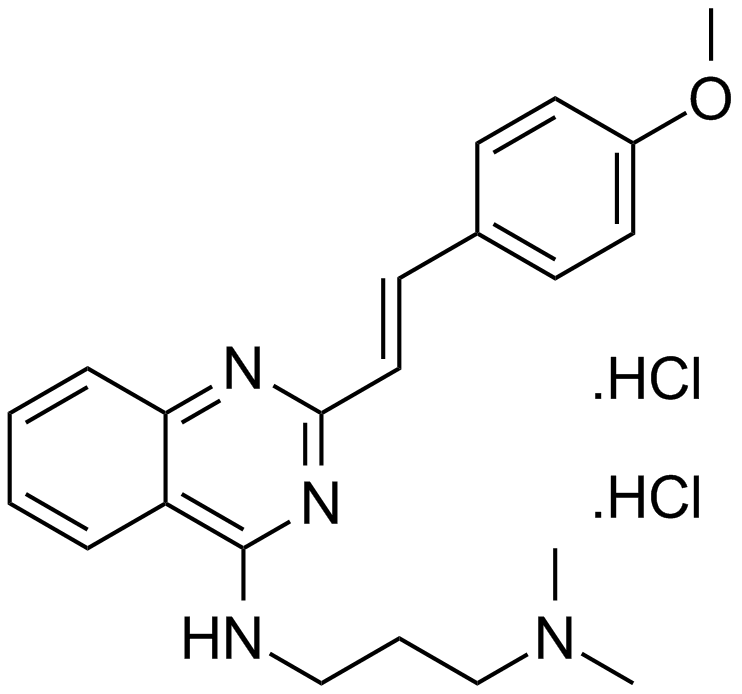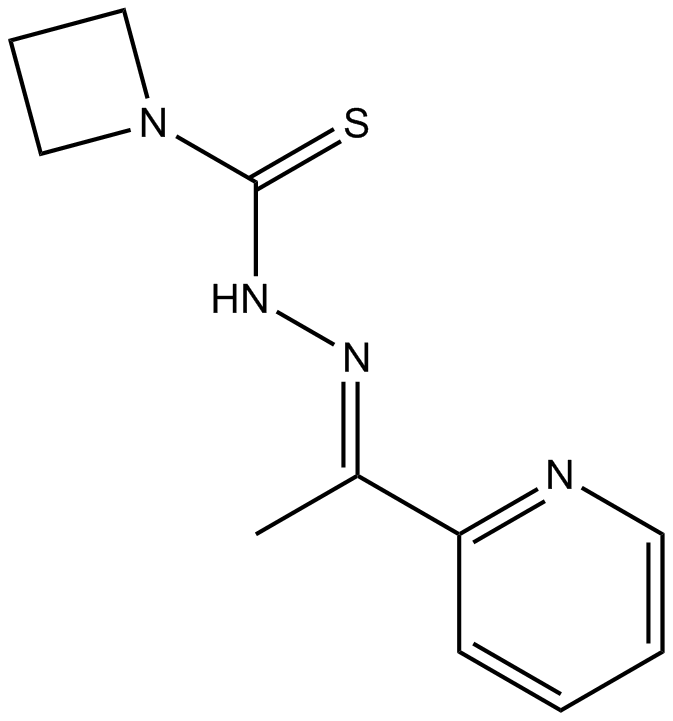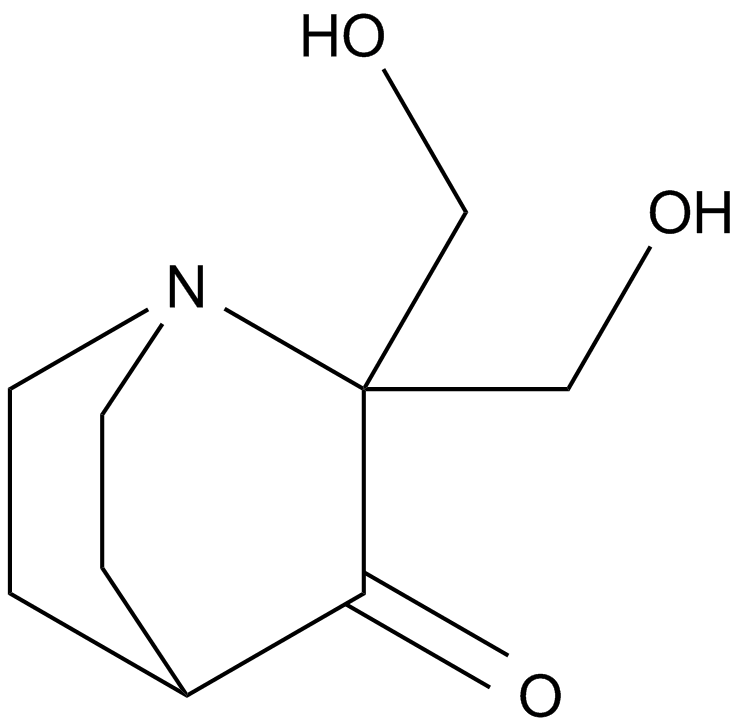PRIMA-1MET
PRIMA-1MET selectively restores the activity of mutant p53 in tumor cells.[1]
The p53 is encoded in humans by the TP53 gene. The molecular mass of p53 is 53 KD. The p53 has the function of regulating the cell cycle, thus, it functions as preventing cancer, a tumor suppressor. The p53 plays an important role in apoptosis, inhibition of angiogenesis and genomic stability by activating DNA repair proteins, arresting cell growth though holding the cell cycle and initiating apoptosis. p53 becomes activated in response to DNA damage, osmotic shock, oxidative stress or other myriad stressors. Activated p53 activates the expression of several genes by binding DNA including p21. p21 binds to the G1-S/CDK complexes which is an important molecules for the G1/S transition, then causes cell cycle arrest. The increasing amount of p53 may be a solution for prevention of tumors spreading or treatment of them. About half of human tumours have mutant p53 then lose the control for cell apotosis.[2]
PRIMA-1MET is a methylated derivative of PRIMA-1. PRIMA-1 suppressed the growth of Saos-2-His-273 osteosarcoma cell but did not affect the cell lines which express wild type P53. PRIMA-1 directly binds to mutant p53 according to gel shift assay.[2] PRIMA-1MET induced nucleolar translocation of Hsp70, PML, CBP and p53 in MCF 7 cells.[3] PRIMA -1MET reactivate the mutant p53, then results in enhanced expression of genes which are involved in apoptosis and cell-cycle regulation[4]. In the H1299-His175 cells, treatment with 50μM PRIMA-1MET leaded to significant caspase-2 activation , then induced mitochondria-mediated apoptosis.[1]
PRIMA-1 MET at 25μM reduced the IC50 of cisplatin in H1299 cells by inducing mutant P53-dependent apotosis.[5]
In SCID mice with H1299-His175 tumor xenografts, the combination of PRIMA-1MET at 100mg/Kg and cisplatin significantly inhibited tumor grown compared to cisplatin only. [5]
References:
[1]. Shen J, Vakifahmetoglu H, Stridh H, Zhivotovsky B, Wiman KG: PRIMA-1MET induces mitochondrial apoptosis through activation of caspase-2. Oncogene 2008, 27(51):6571-6580.
[2]. Bykov VJ, Selivanova G, Wiman KG: Small molecules that reactivate mutant p53. Eur J Cancer 2003, 39(13):1828-1834.
[3]. Stuber G, Flaberg E, Petranyi G, Otvos R, Rokaeus N, Kashuba E, Wiman KG, Klein G, Szekely L: PRIMA-1MET induces nucleolar translocation of Epstein-Barr virus-encoded EBNA-5 protein. Mol Cancer 2009, 8:23.
[4]. Lambert JM, Moshfegh A, Hainaut P, Wiman KG, Bykov VJ: Mutant p53 reactivation by PRIMA-1MET induces multiple signaling pathways converging on apoptosis. Oncogene 2010, 29(9):1329-1338.
[5]. Bykov VJ, Zache N, Stridh H, Westman J, Bergman J, Selivanova G, Wiman KG: PRIMA-1(MET) synergizes with cisplatin to induce tumor cell apoptosis. Oncogene 2005, 24(21):3484-3491.
| Physical Appearance | A solid |
| Storage | Store at 4°C |
| M.Wt | 199.25 |
| Cas No. | 5291-32-7 |
| Formula | C10H17NO3 |
| Synonyms | APR-246 |
| Solubility | ≥102 mg/mL in EtOH with ultrasonic; ≥104.2 mg/mL in H2O; ≥19.9 mg/mL in DMSO |
| Chemical Name | 2-(hydroxymethyl)-2-(methoxymethyl)-1-azabicyclo[2.2.2]octan-3-one |
| SDF | Download SDF |
| Canonical SMILES | COCC1(C(=O)C2CCN1CC2)CO |
| Shipping Condition | Small Molecules with Blue Ice, Modified Nucleotides with Dry Ice. |
| General tips | We do not recommend long-term storage for the solution, please use it up soon. |
| Cell experiment [1]: | |
|
Cell lines |
Human myeloma cell lines(XG6, OPM2, JJN3) |
|
Preparation method |
The solubility of this compound in DMSO is >10 mM. General tips for obtaining a higher concentration: Please warm the tube at 37 °C for 10 minutes and/or shake it in the ultrasonic bath for a while.Stock solution can be stored below -20°C for several months. |
|
Reaction Conditions |
72 h; LD50=~37 μM. |
|
Applications |
PRIMA-1MET was tested using 3 HMCLs that expressed either a wild-type protein (XG6), or a TP53R175H mutant protein previously reported to be reactivated by PRIMA-1Met (OPM2), or no p53 protein (JJN3). PRIMA-1Met (LD50 value) did not induce p21 expression but did induce strong expression of Noxa in HMCLs, regardless of the p53 expression or status. Of note, the expression of p53 either mutated or wild-type, became undetectable after PRIMA-1Met treatment. PRIMA-1Met induced apoptosis as revealed by the cleavage of caspases 2 and 3, and PARP. |
| Animal experiment [1]: | |
|
Animal models |
Female SCID beige 7-week-old mice |
|
Dosage form |
8 mg/kg; intravenous injection |
|
Applications |
SCID-beige mice bearing JJN3 tumor cells received either no treatment (control), or PRIMA-1Met (18 mg/kg, intravenous injection), or BSO (10 mM, drinking water) or the combination of BSO and PRIMA-1Met. Treatments were performed daily for 4 days, stopped for 2 days and performed again for another 4 days. Mice were then sacrificed at Day 16 because control and BSO-treated tumors exceeded the authorized tumor load. Body weight was not significantly affected by any treatments. PRIMA-1Met significantly impaired tumor growth (p |
|
Other notes |
Please test the solubility of all compounds indoor, and the actual solubility may slightly differ with the theoretical value. This is caused by an experimental system error and it is normal. |
|
References: [1] Tessoulin B, Descamps G, Moreau P, et al. PRIMA-1Met induces myeloma cell death independently of p53 by impairing the GSH/ROS balance[J]. Blood, 2014. |
|
| Description | PRIMA-1MET is methylated derivative of PRIMA-1. It can restore mutant p53 activity. | |||||
| Targets | p53 | |||||
| IC50 | ||||||
Quality Control & MSDS
- View current batch:
Chemical structure

Related Biological Data

Related Biological Data



